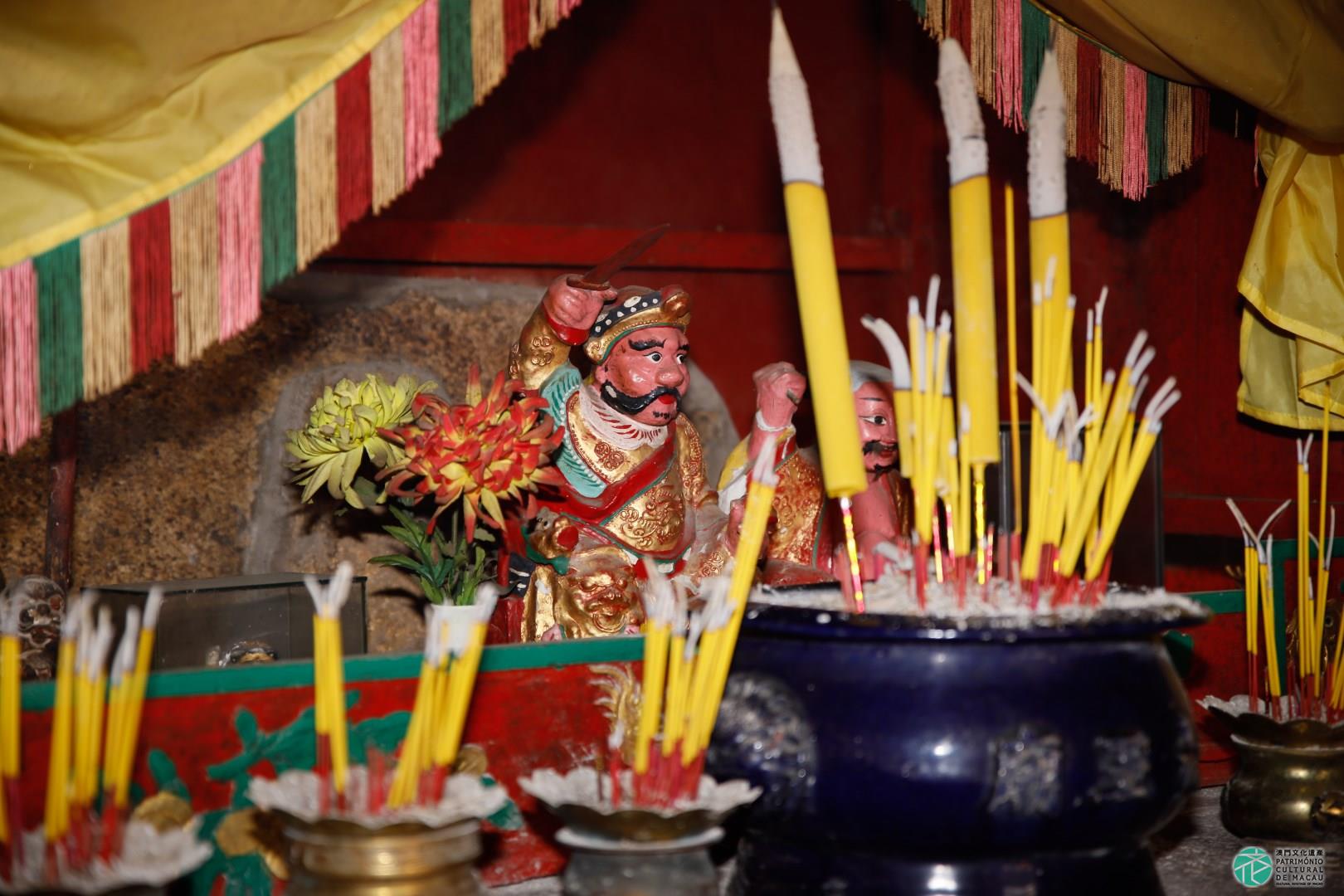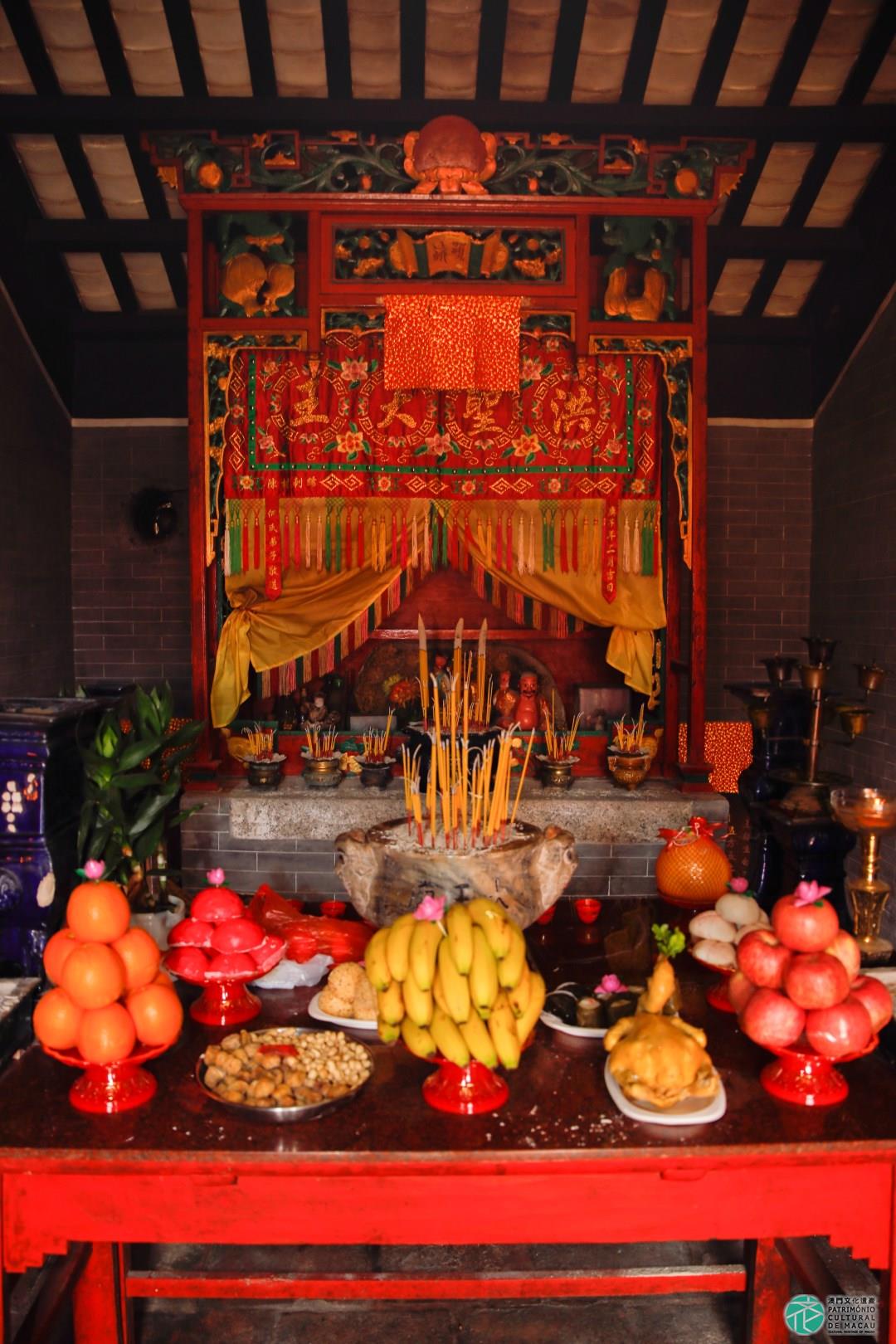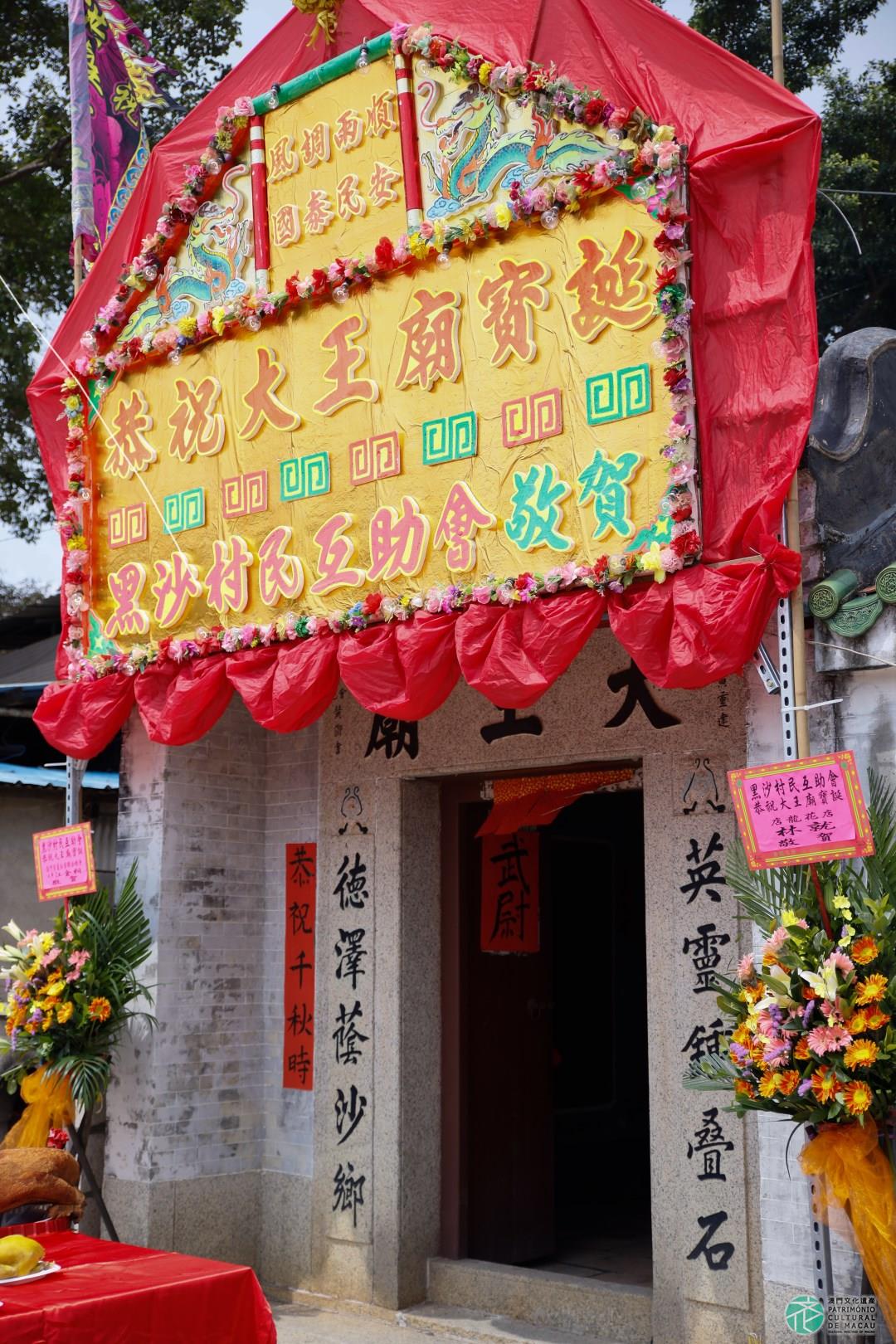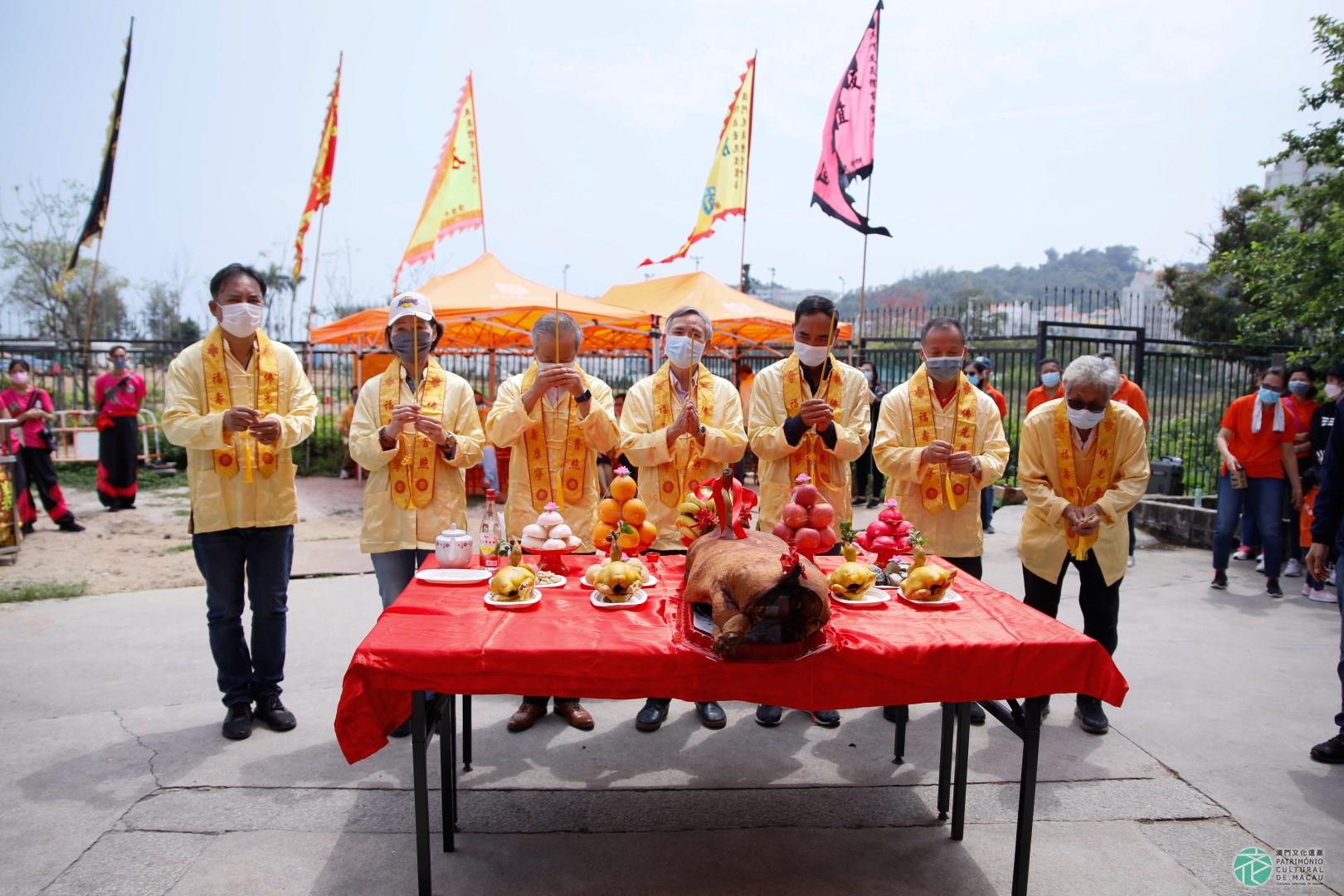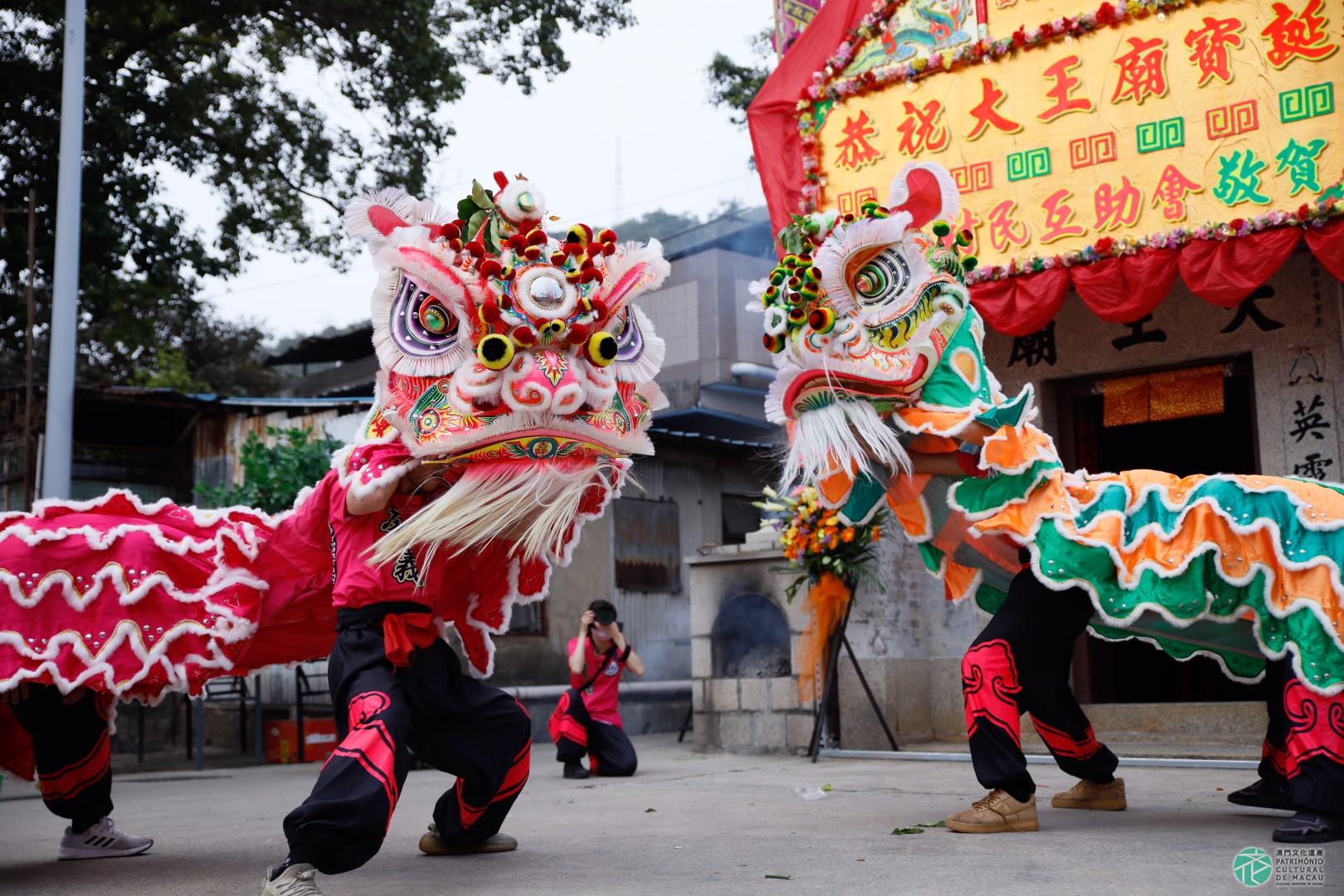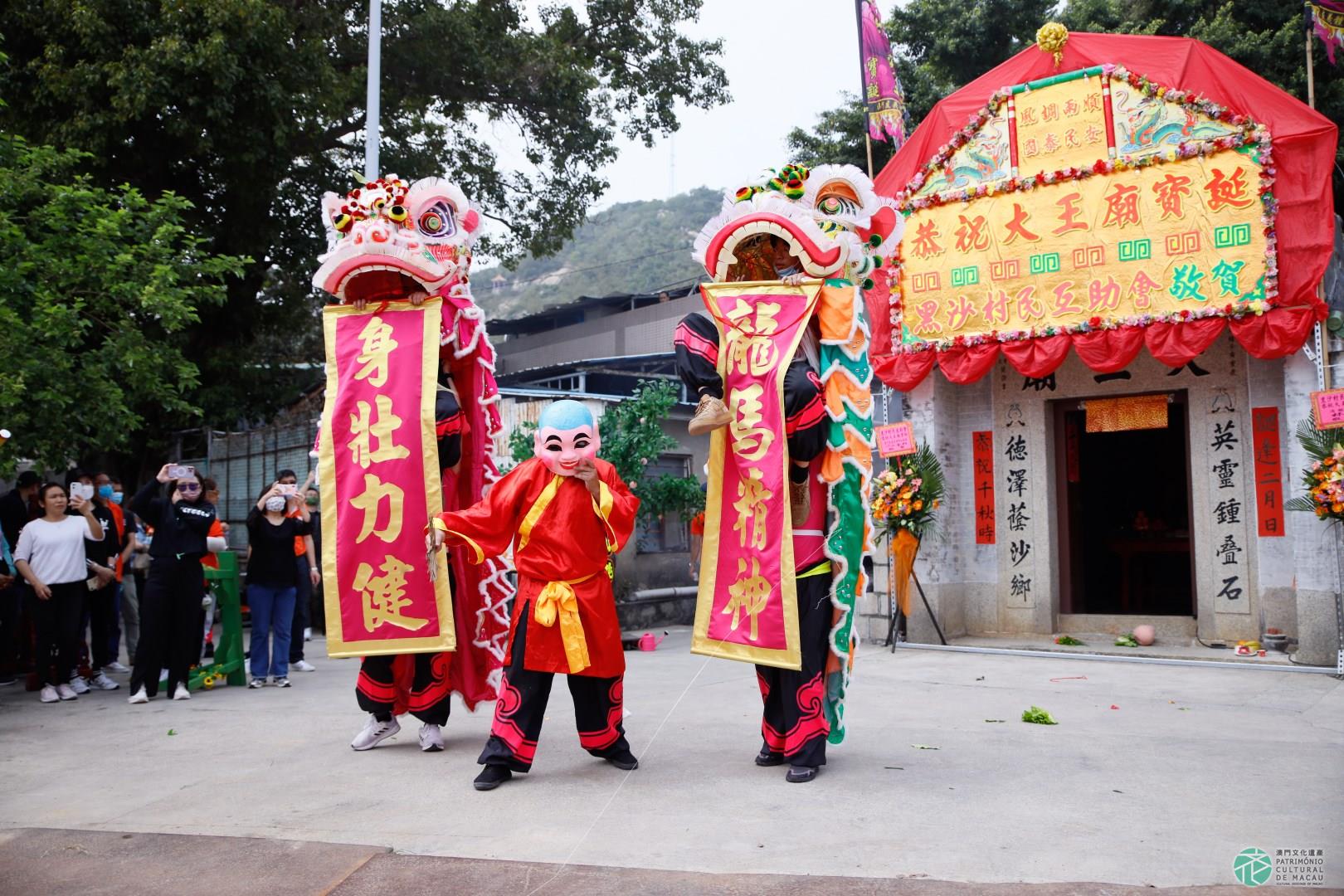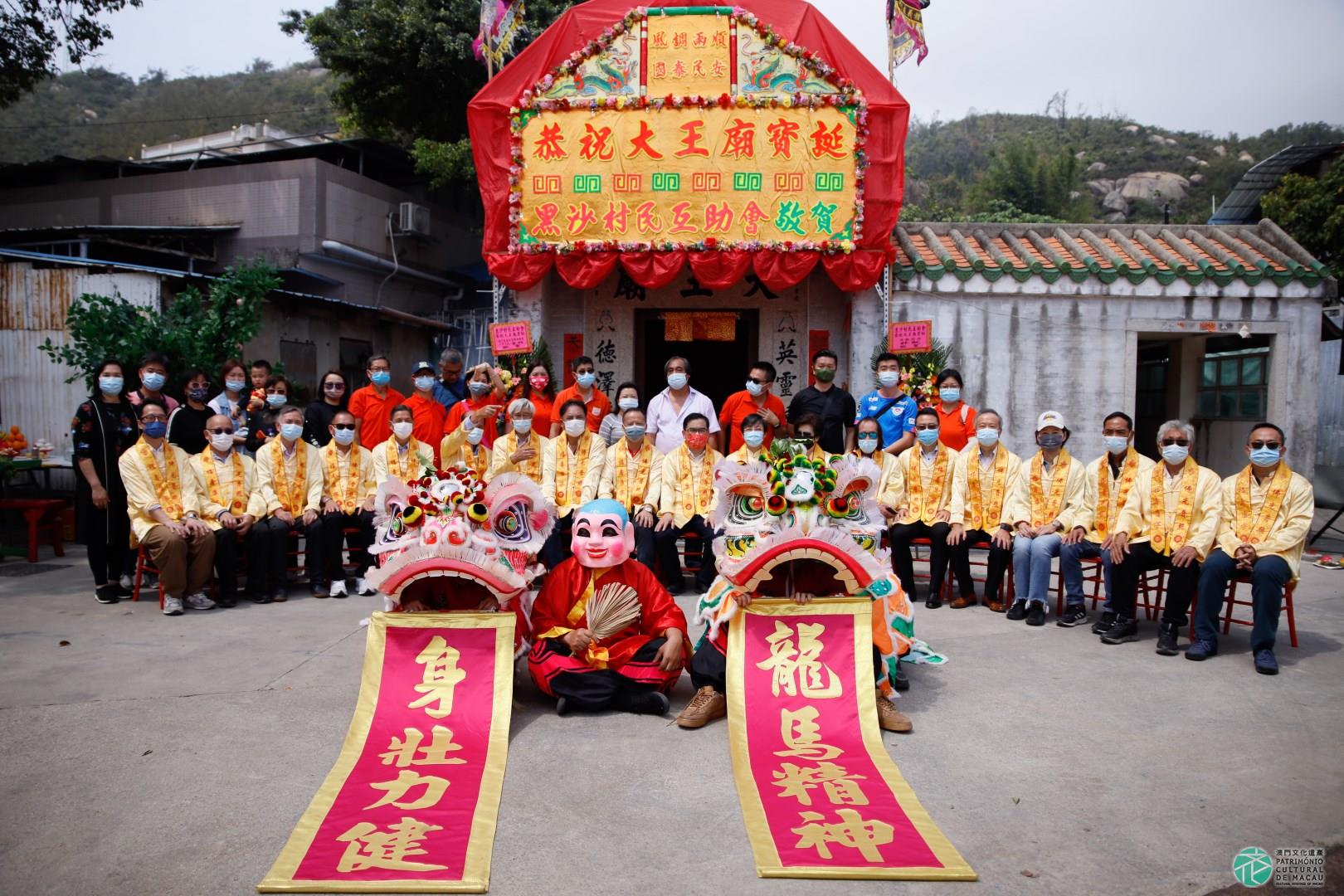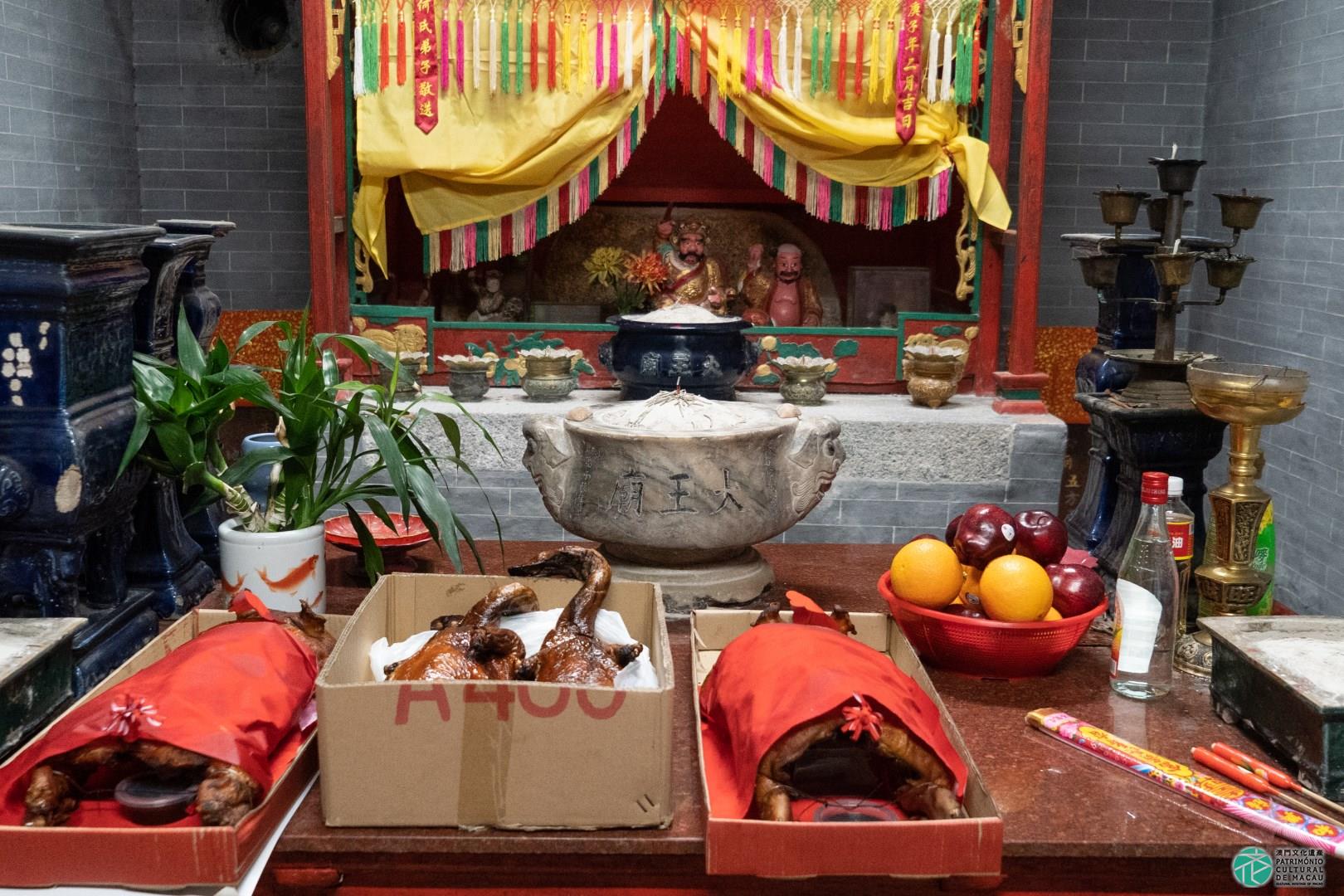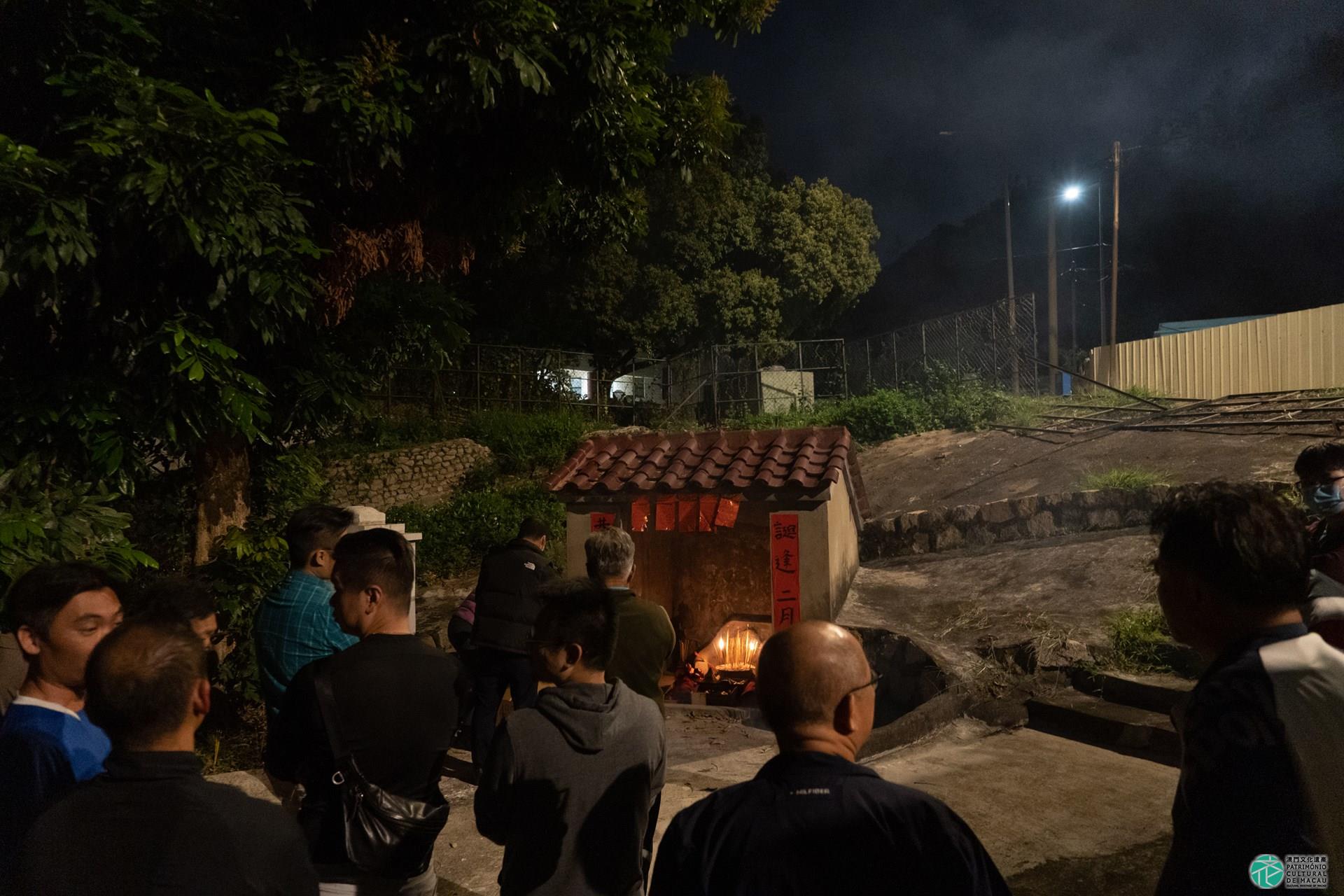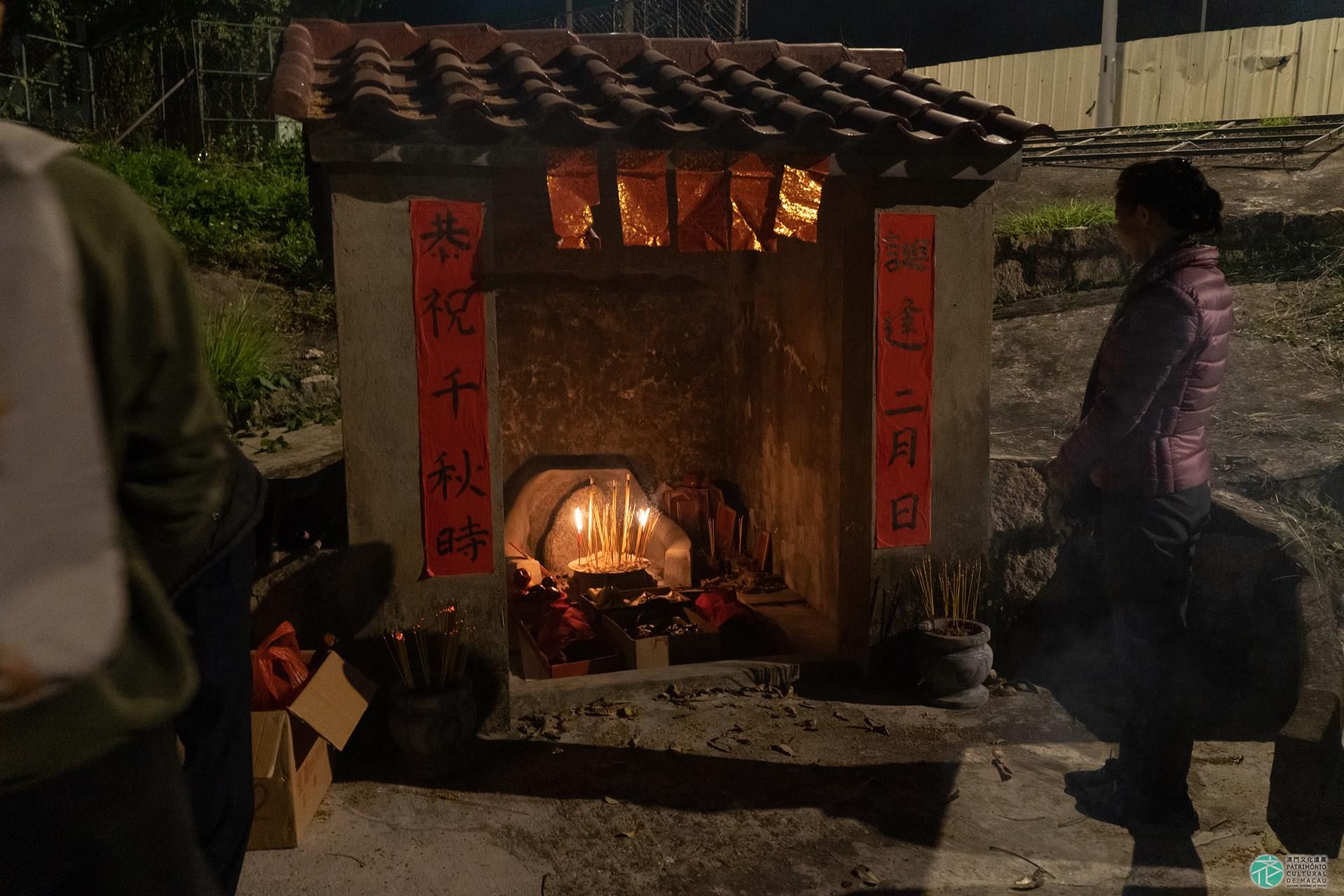Introduction:
Hung Shing Tai Wong, also known as Hung Shing Ye, is worshipped as a sea deity by residents and fishermen in the coastal areas of southern China. There are many temples in Macao dedicated to Hung Shing Tai Wong, whose birthday falls on the 13th day of the second lunar month. Among other local temples, the Tai Wong Temple in Hac Sa Village of Coloane is the largest, where the Tai Wong Celebrations are held annually on the 15th day of the second lunar month, being the characteristic folk celebrations of Hac Sa Village. The early inhabitants of the Hac Sa Village were mostly fishermen and farmers who worshipped Tai Wong to pray for safe sea voyages. Although most people in the village no longer rely on fishing, the tradition of worshipping Tai Wong has been preserved and Tai Wong is considered as the “patron deity of the village”.
Conservation Status:
Tai Wong Celebrations take place in Hac Sa Village of Coloane and they are a grand occasion, usually attended by a large number of people. On this day, residents of the Hac Sa Village perform a series of rituals in the Tai Wong Temple, such as incense burning, sacrifice offering, distribution of auspicious meat, dragon and lion dances, parades, accompanying the so-called “Choy Cheng” (plucking the greens), burning firecrackers and attending Poon Choi banquets (a traditional feast in which the dish is served in a big wooden basin at each table). In recent years, the scale of the celebrations has been expanding, becoming an important occasion for the inhabitants and their family members of the Hac Sa Village to renew family bonds and to strengthen unity among the community of Hac Sa Village.
Heritage Value:
Tai Wong Celebrations are important traditional folk activities of the Hac Sa Village of Coloane. As one the main traditions connected with the beliefs of Hung Shing Tai Wong, the celebrations also reveal the deep respect for nature of the residents of the village. This event is also representative of the transmission and continuity of Taoist beliefs, particularly within the context of traditional folk culture of the coastal areas of China. The rituals of this tradition also reveal important elements for the study of the folk culture of Macao.
